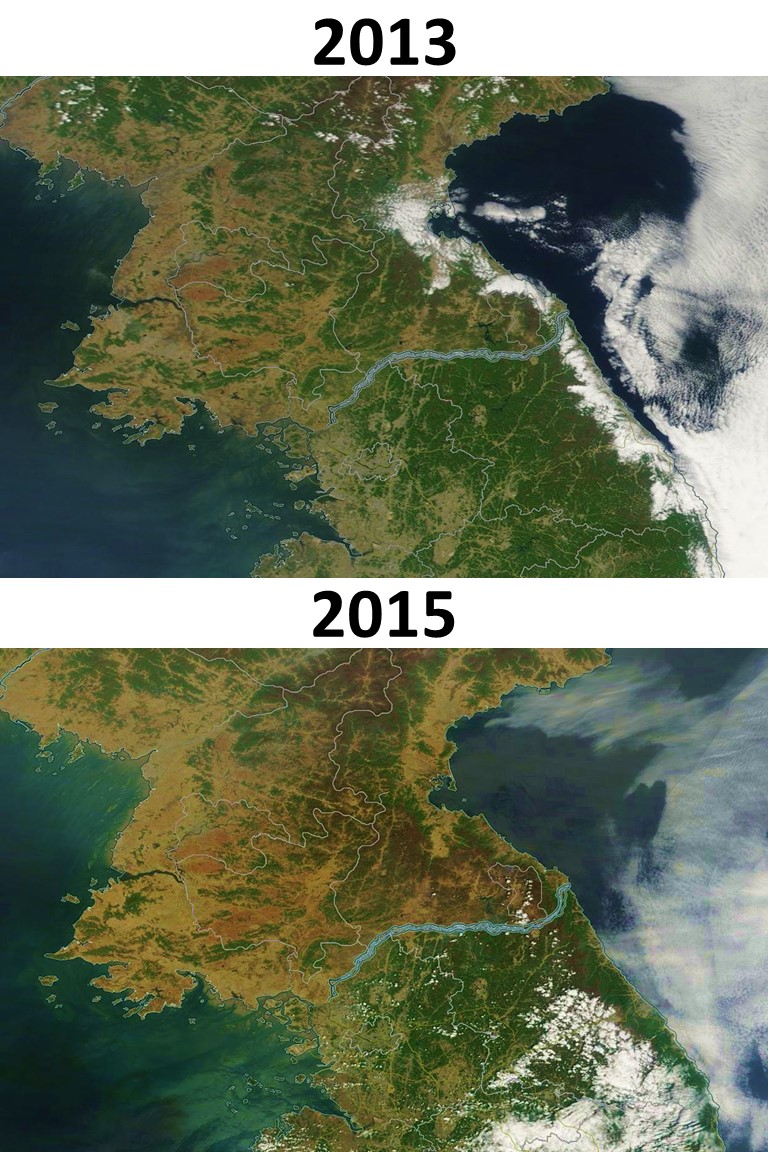A secretive government can lie about many things, but it can’t hide its landscape from Earth orbiting satellites.
Most people are familiar with the nighttime satellite imagery revealing virtually no lights on in North Korea, presumably due to its extreme poverty. It’s always Earth Hour there.
But MODIS satellite imagery from yesterday shows that North Korea is cutting down its trees at an alarming rate, while South Korea shows about the same level of greenness compared to two years ago:
In contrast to PBS’s article on North Korea’s environmental collapse, which makes it sound like a case of simple neglectfulness or poor land management, North Koreans are just trying to stay alive. The poorest countries of the world have the worst environmental records as the land is denuded for firewood.
To get some sense of the North Korean mindset, read this candid, sad, yet humorous Tim Urban article, 20 Things I Learned While I Was In North Korea.
Now you’ll have to excuse me while I go change all of my computer passwords since one thing the North Koreans are good at is hacking the computers of people they don’t like.

 Home/Blog
Home/Blog




